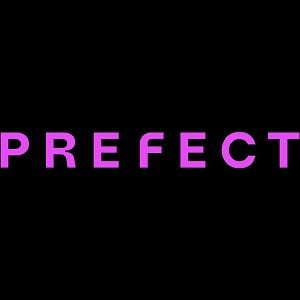In this episode of the Data Engineering Podcast Hannes Mühleisen and Mark Raasveldt, the creators of DuckDB, share their work on Duck Lake, a new entrant in the open lakehouse ecosystem. They discuss how Duck Lake, is focused on simplicity, flexibility, and offers a unified catalog and table format compared to other lakehouse formats like Iceberg and Delta. Hannes and Mark share insights into how Duck Lake revolutionizes data architecture by enabling local-first data processing, simplifying deployment of lakehouse solutions, and offering benefits such as encryption features, data inlining, and integration with existing ecosystems.
Announcements
- Hello and welcome to the Data Engineering Podcast, the show about modern data management
- Data teams everywhere face the same problem: they're forcing ML models, streaming data, and real-time processing through orchestration tools built for simple ETL. The result? Inflexible infrastructure that can't adapt to different workloads. That's why Cash App and Cisco rely on Prefect. Cash App's fraud detection team got what they needed - flexible compute options, isolated environments for custom packages, and seamless data exchange between workflows. Each model runs on the right infrastructure, whether that's high-memory machines or distributed compute. Orchestration is the foundation that determines whether your data team ships or struggles. ETL, ML model training, AI Engineering, Streaming - Prefect runs it all from ingestion to activation in one platform. Whoop and 1Password also trust Prefect for their data operations. If these industry leaders use Prefect for critical workflows, see what it can do for you at dataengineeringpodcast.com/prefect.
- Data migrations are brutal. They drag on for months—sometimes years—burning through resources and crushing team morale. Datafold's AI-powered Migration Agent changes all that. Their unique combination of AI code translation and automated data validation has helped companies complete migrations up to 10 times faster than manual approaches. And they're so confident in their solution, they'll actually guarantee your timeline in writing. Ready to turn your year-long migration into weeks? Visit dataengineeringpodcast.com/datafold today for the details.
- Your host is Tobias Macey and today I'm interviewing Hannes Mühleisen and Mark Raasveldt about DuckLake, the latest entrant into the open lakehouse ecosystem
- Introduction
- How did you get involved in the area of data management?
- Can you describe what DuckLake is and the story behind it?
- What are the particular problems that DuckLake is solving for?
- How does this compare to the capabilities of MotherDuck?
- Iceberg and Delta already have a well established ecosystem, but so does DuckDB. Who are the primary personas that you are trying to focus on in these early days of DuckLake?
- One of the major factors driving the adoption of formats like Iceberg is cost efficiency for large volumes of data. That brings with it challenges of large batch processing of data. How does DuckLake account for these axes of scale?
- There is also a substantial investment in the ecosystem of technologies that support Iceberg. The most notable ecosystem challenge for DuckDB and DuckLake is in the query layer. How are you thinking about the evolution and growth of that capability beyond DuckDB (e.g. support in Trino/Spark/Flink)?
- What are your opinions on the viability of a future where DuckLake and Iceberg become a unified standard and implementation? (why can't Iceberg REST catalog implementations just use DuckLake under the hood?)
- Digging into the specifics of the specification and implementation, what are some of the capabilities that it offers above and beyond Iceberg?
- Is it now possible to enforce PK/FK constraints, indexing on underlying data?
- Given that DuckDB has a vector type, how do you think about the support for vector storage/indexing?
- How do the capabilities of DuckLake and the integration with DuckDB change the ways that data teams design their data architecture and access patterns?
- What are your thoughts on the impact of "data gravity" in today's data ecosystem, with engines like DuckDB, KuzuDB, LanceDB, etc. available for embedded and edge use cases?
- What are the most interesting, innovative, or unexpected ways that you have seen DuckLake used?
- What are the most interesting, unexpected, or challenging lessons that you have learned while working on DuckLake?
- When is DuckLake the wrong choice?
- What do you have planned for the future of DuckLake?
Parting Question
- From your perspective, what is the biggest gap in the tooling or technology for data management today?
- Thank you for listening! Don't forget to check out our other shows. Podcast.__init__ covers the Python language, its community, and the innovative ways it is being used. The AI Engineering Podcast is your guide to the fast-moving world of building AI systems.
- Visit the site to subscribe to the show, sign up for the mailing list, and read the show notes.
- If you've learned something or tried out a project from the show then tell us about it! Email hosts@dataengineeringpodcast.com with your story.
- DuckDB
- DuckLake
- DuckDB Labs
- MySQL
- CWI
- MonetDB
- Iceberg
- Iceberg REST Catalog
- Delta
- Hudi
- Lance
- DuckDB Iceberg Connector
- ACID == Atomicity, Consistency, Isolation, Durability
- MotherDuck
- MotherDuck Managed DuckLake
- Trino
- Spark
- Presto
- Spark DuckLake Demo
- Delta Kernel
- Arrow
- dlt
- S3 Tables
- Attribute Based Access Control (ABAC)
- Parquet
- Arrow Flight
- Hadoop
- HDFS
- DuckLake Roadmap




